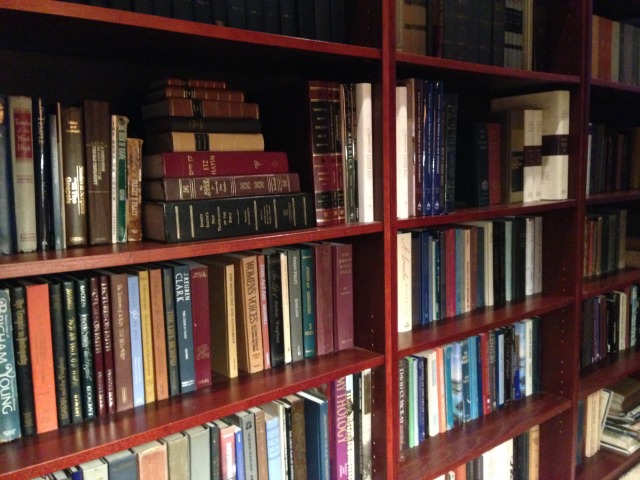I read about the Denver Snuffer mess. I read his book on the second comforter and he has a lot of truth in it, but I do not believe he is a true messenger from God. He has mixed truth with error.
Ok, ok — so a man can err in doctrine and still be a good man. But a man can err in doctrine and head down the wrong way.
Last month, on the 40th anniversary of his baptism into the LDS church, Denver was excommunicated for his book, Passing the Heavenly Gift. I haven’t read all of the book, only excerpts. But I am not comfortable with his opinion that the church has, more or less, gone astray since Joseph Smith died. He also denies that Joseph believed in polygamy. And he basically hates Brigham Young. I believe that if you have those opinions, you are not really believing the Mormon faith.
About 1990, I began reading Avraham Gileadi and attended his seminars where he talked about Isaiah. In fact, he stayed one night in our home during one of the seminars in Southern California. We had a first edition of his book, The Book of Isaiah: A New Translation with Interpretive Keys from the Book of Mormon. Since he didn’t have a first addition, we gave him ours, in exchange for a signed paperback that we have kept.
Brother Gileadi was excommunicated in 1993 along with the September six. I was shocked. I love his book. I didn’t really understand why. I have since read his book, Isaiah Decoded: Ascending the Ladder to Heaven. I have read it several times because I learn so much. It helps me understand the highs and lows of this mortal life. How you descend through trials and tribulations and then if you endure it well, you ascend to a higher plane than where you began.
Brother Gileadi is a member of the church, and his excommunication was reversed — the church afterwards reversed its disciplinary action and expunged it from the church’s records, as if it never happened.
I understand there is a difference between church doctrine and church policy — that some things come by revelation and some by men; and then policy can become ingrained over the years. We are all imperfect people. Pres. Uchtdorf reminded, in the preface to The Book of Mormon, we are told that men make mistakes, “And now, if there are faults they are the mistakes of men; wherefore, condemn not the things of God.”
Hugh Nibley held very strong opinions on many gospel subjects — for example, the idea that as endowed members we have covenanted to live the law of consecration and can do so today — consecration isn’t for some later time.
Brother Nibley also held some strong opinions that conflicted with church policy — but he stayed publicly silent on those subjects. His son-in-law, Boyd Petersen has shared the following:
“There are several examples I could cite where Hugh disagreed with Church policy. But when he could not argue forcefully for the Church, he kept his mouth shut. During the debate over blacks and the priesthood, Hugh evidently disagreed with the policy. Nevertheless, he never voiced those beliefs until after the priesthood ban was lifted. I once asked him about something that might be seen as heretical today but which was not in the nineteenth century, and he responded, “I never think about that.” Then he paused and restated, “Well, I think about it, but I never talk about it.” This may seem cowardly to some, but clearly Hugh was able to do more for the Church by remaining loyal and quiet; he would have lost that ability had he come out in open opposition to the Church’s position.” (Boyd Petersen, Hugh Nibley’s son-in-law)
Often in the Book of Mormon the authors say they were commanded to preach something, and then at other times they say they were constrained to shut their mouth and not share anymore.
In this confusing world of many views and opinions, we must take great care in seeking the Lord and following the guidance of the Holy Ghost. We will hear many things, some good, some containing errors, some just policies and not doctrine.


